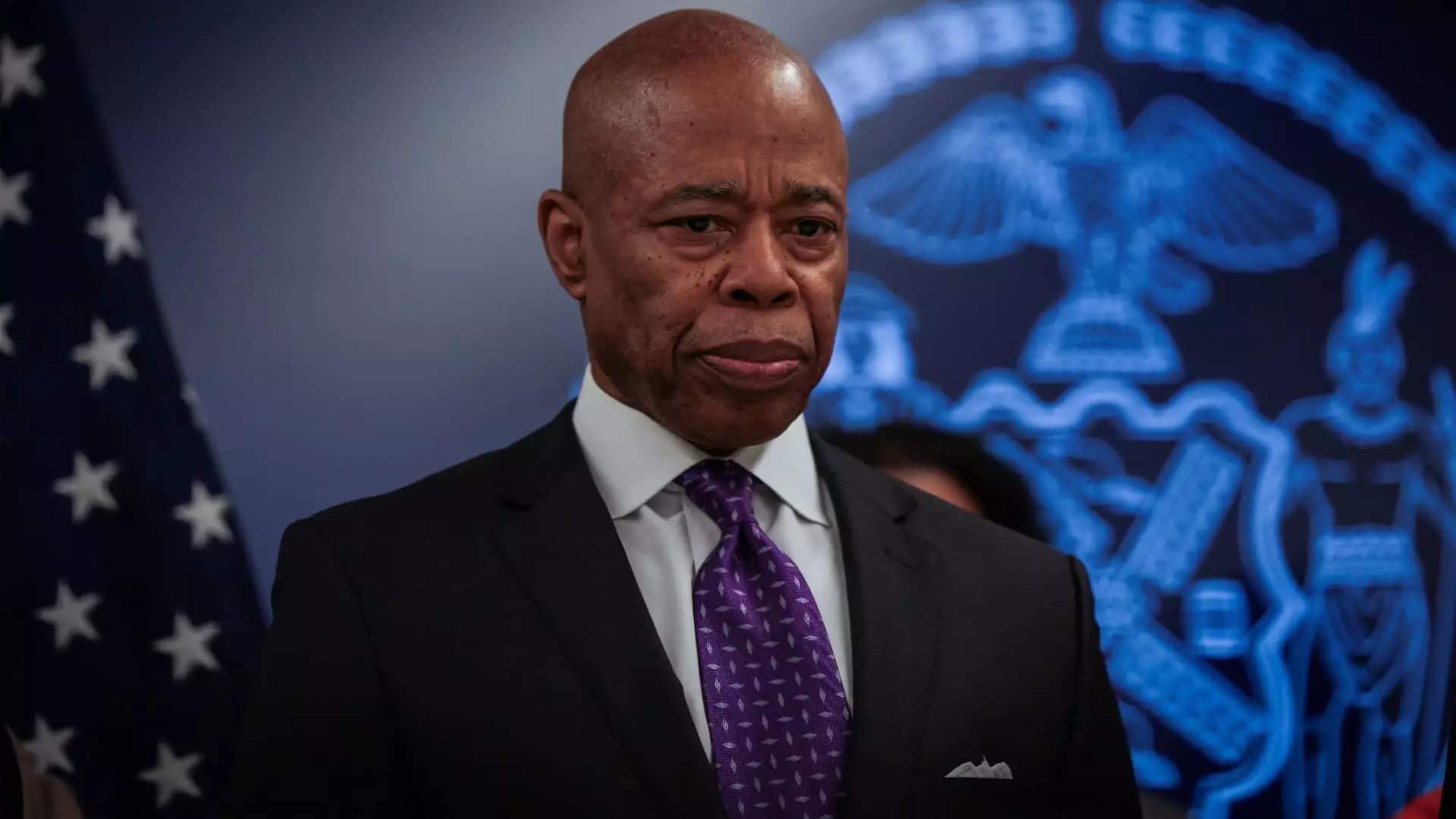The political dynamics in New York City have taken a dramatic turn with the ongoing corruption case against Mayor Eric Adams. Recently, a federal judge, Dale Ho, decided not to dismiss the case outright but ordered an indefinite delay in the proceedings. This decision comes in the wake of a request from the Justice Department to drop the charges against Adams, stirring a storm of controversy that evokes questions about political influence, accountability, and the intersection of law and politics.
Eric Adams, who has served as mayor since 2022, is currently facing serious allegations including accepting bribes and campaign contributions from Turkish nationals aiming to sway his decisions. Initially charged in September, Adams has consistently maintained his innocence, pleading not guilty. His administration now finds itself entangled in a web of serious allegations that the Justice Department has pursued since the previous administration. In February, Acting Deputy Attorney General Emil Bove issued orders to seek the dismissal of the charges, citing that the ongoing case hindered Adams’ ability to govern effectively and impacted his re-election campaign.
The context of the Justice Department’s involvement raised eyebrows, particularly considering that several prosecutors resigned in protest over Bove’s directives. This unusual move suggests a deep-seated conflict within the Department itself, compounded by political ramifications that could affect public trust in justice and governance.
The Political Maneuvering at Play
The situation has escalated tensions between Democrats and Republicans, creating a fracture within not only Adams’ administration but also among the broader political landscape of New York. Critics argue that dismissing the charges against Adams could require him to align his political objectives with those of Donald Trump, potentially jeopardizing the independence of his office and giving rise to accusations of a quid pro quo arrangement.
In the aftermath of Bove’s directive, which some view as a politically charged intervention, senior Democrats have voiced their concerns that the dismissal might make Adams beholden to Trump’s agenda, particularly his hardline stance on immigration. This has led to calls from several influential Democratic figures for Adams to step down, arguing that the integrity of the mayor’s office is at stake.
The legal battles surrounding Adams’ case raise essential questions about the separation of powers and the ethical boundaries of political influence. The fact that several prosecutors resigned rather than comply with a directive they deemed politically motivated underscores a troubling trend: the potential manipulation of the judicial process for political gain. Such actions could set a dangerous precedent, where the law is selectively applied depending on the political affiliation of those in power.
Moreover, Adams’ defense has claimed that the investigations are politically motivated retaliation for his critical stance towards the Biden administration’s immigration policies. While Adams has not presented substantial evidence to support this assertion, it does highlight the increasingly blurred lines between personal political grievances and legitimate concerns regarding justice.
Adams finds himself at a crossroads, trying to maintain his political position while grappling with serious allegations that could derail his administration. As he campaigns for re-election, the specter of these charges hangs over him, complicating his ability to focus on pressing city issues. The resignations within his team have further weakened his administration’s stability, raising concerns about his operational capability amid crises.
Governor Kathy Hochul has publicly stated her reluctance to intervene, instead advocating for increased oversight of the mayor’s office. This stance indicates a critical moment for New York politics, where the dynamics within both parties will likely play a significant role in determining the future outcome of this case and its implications.
The controversy surrounding Eric Adams is emblematic of the intricate relationship between politics and law. As the Justice Department, local governance, and national political narratives intertwine, the implications of this case could resonate far beyond New York City. The political landscape is poised for further upheaval as the focus shifts from legal proceedings to broader questions about governance, accountability, and the integrity of public office. As the city watches closely, the unfolding of this saga may redefine political principles and administration in the years to come.


Leave a Reply